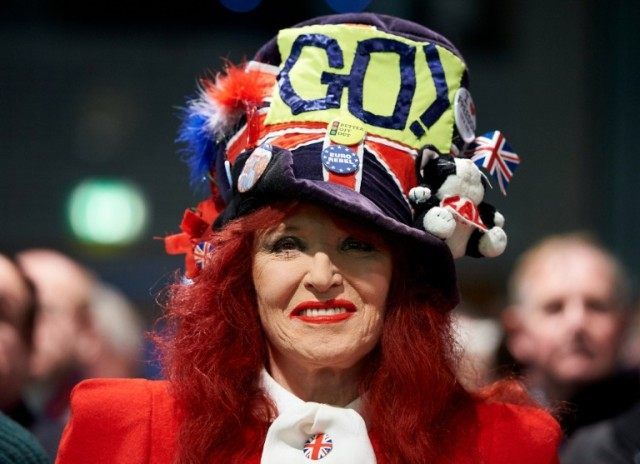London (AFP) – Prime Minister David Cameron stands accused of unleashing “Project Fear” to try and keep Britain in the EU at a June referendum — but experts say both camps are resorting to negative campaign tactics to win support.
Cameron’s old friend and nemesis Boris Johnson, who came out for Brexit in a surprise snub to the premier last month, has led the attacks with a string of well-crafted broadsides accusing the “Remain” camp of scaremongering.
“The agents of Project Fear — and they seem to be everywhere — have warned us that leaving the EU would jeopardise police, judicial and intelligence cooperation,” Johnson wrote in the Daily Telegraph shortly after announcing he would support the “Leave” camp.
“In every case, the message is that Brexit is simply too scary — and the reality is that these threats are so wildly exaggerated as to be nonsense.”
Another leading anti-EU figure, Cameron’s welfare minister Iain Duncan Smith, accused the other side of “spin, smears and threats”.
But neither side is innocent of the charge of negative campaigning, according to observers ahead of the June 23 referendum.
“The reality is that so far, this campaign has largely been Project Fear meets Project Fear,” said Raoul Ruparel, co-director of think-tank Open Europe.
“This also suggests that the campaign will predominantly be fought on the issue of risk.”
– Project Fact, Project Hope? –
“Project Fear” has its roots in the last referendum, which left Britain’s government facing a battle to preserve the status quo with the 2014 Scottish independence vote.
The nickname was coined as a joke by a senior figure in the, ultimately successful, campaign to keep Scotland in Britain to describe his own side.
It was then co-opted by pro-independence activists frustrated by what they said was unionist negativity.
During the EU referendum, outers have attached the “Project Fear” label to official claims that migrant camps in northern France could move to England and big companies could quit Britain after a Brexit.
Such claims have been backed up by European leaders — French President Francois Hollande has warned of the “consequences” of leaving the EU, while German Finance Minister Wolfgang Schaeuble said a Europe without Britain would be “more volatile”.
Ruparel says “Project Fear” can also be associated with warnings from the “Leave” camp about Britain’s supposed lack of control over its borders — even though it is outside the EU’s Schengen free movement area.
Duncan Smith and other pro-Brexiters have suggested that Britain would be more vulnerable to the kind of jihadist attacks seen in Paris last November if it stayed in the EU.
“With thousands of Islamist terrorists exploiting the migrant crisis, we would be far safer outside the EU,” Nigel Farage, leader of the anti-EU UK Independence Party (UKIP) wrote on Twitter Wednesday.
All sides reject any suggestion of negative campaigning. Johnson calls his camp “Project Hope”, while Cameron insists he is running “Project Fact”.
“Today I just want to present you with the facts so you can make up your own mind,” the premier said in a trade speech Thursday which stressed the positive case for staying in the EU.
– Last-minute voters –
Opinion polls indicate that the race is finely balanced. “Remain” is on 51 percent and “Leave” on 49 percent, according to a poll of polls by the What UK Thinks research project.
And many people have yet to make up their minds — while figures vary, most pollsters put the figure somewhere around 20 percent.
Caitlin Milazzo, assistant politics professor at Nottingham University and an expert on political campaigning, said that “a lot of people who decide at the last minute decide to go with the status quo”.
For many voters, particularly those who are undecided, the decision will come down to a question of risk — hence the importance for both sides of stressing the pitfalls associated with the other side.
“The instinctive pulse of the nation is to see Brexit as a risky option,” said Matthew Goodwin, politics professor at Kent University and an expert on euroscepticism.
“Somewhere between now and June 23, the Leave camp has some obstacles to overcome.”

COMMENTS
Please let us know if you're having issues with commenting.